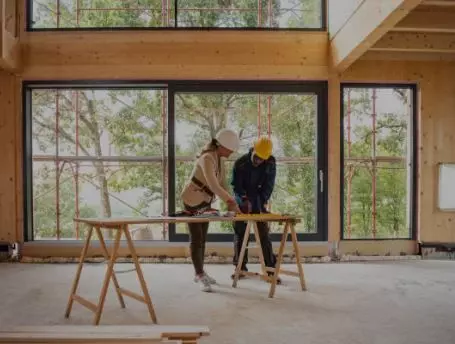Homebuilders Aren’t Overbuilding, They’re Catching Up

The real estate market is often a hot topic, with trends and changes constantly being analyzed and debated. One area of particular interest is the pace at which new homes are being built. Contrary to some concerns, homebuilders aren’t overbuilding – they’re catching up. Here’s a closer look at why the current pace of home construction is not only necessary but also a response to long-standing demand.
The Impact of the Housing Shortage
Over the past decade, the United States has experienced a significant housing shortage. The economic downturn in the late 2000s led to a drastic slowdown in homebuilding, creating a backlog of unmet housing needs. As the economy recovered, the demand for homes surged, but the supply didn’t keep pace. This imbalance has resulted in higher home prices and reduced affordability for many prospective buyers.
Population Growth and Household Formation
The U.S. population continues to grow, and with it, the number of households. Millennials, the largest generational group, are entering their prime homebuying years, driving demand for housing. Additionally, changing demographics, such as an increase in single-person households and multi-generational living, are contributing to the need for more housing units. Homebuilders are working to meet this rising demand by increasing construction efforts.
Urbanization and Demand for Diverse Housing
Urban areas are experiencing significant growth as more people move to cities for job opportunities and amenities. This urbanization trend has increased the demand for diverse housing options, including single-family homes, townhouses, and multi-family units. Homebuilders are not only constructing new homes but also developing a variety of housing types to cater to different preferences and needs.
Technological Advancements and Efficiency
Advancements in construction technology and building practices have enabled homebuilders to work more efficiently and effectively. These innovations allow for faster construction times and improved quality, helping builders to keep up with demand without compromising on standards. Prefabricated homes, sustainable building materials, and smart home technologies are just a few examples of how the industry is evolving.
Economic Stimulus and Housing Policies
Government policies and economic stimulus measures have also played a role in boosting homebuilding activities. Low-interest rates, tax incentives, and funding for infrastructure projects have created a favorable environment for new construction. These policies are designed to stimulate economic growth and address the housing shortage, ensuring that more people have access to affordable housing.
Meeting Future Housing Needs
Looking ahead, it’s clear that the demand for housing will continue to grow. Homebuilders are not only catching up with the current backlog but also preparing for future needs. By expanding their capacity and leveraging new technologies, builders are positioning themselves to meet the ongoing demand for housing in the coming years.
The perception that homebuilders are overbuilding is a misunderstanding of the current market dynamics. In reality, they are responding to a significant and long-standing housing shortage, driven by population growth, urbanization, and changing demographics. By increasing the pace of construction and embracing new technologies, homebuilders are working to ensure that more people have access to the homes they need.
If you’re interested in learning more about the real estate market or exploring new construction homes, please feel free to reach out. We’re here to help you navigate the ever-changing landscape of real estate with confidence and ease.
Categories
- All Blogs (288)
- All about Boston (49)
- Buyer Tips (134)
- December Home Maintenance and Safety Tips (1)
- FUN Facts (10)
- Home Décor Ideas (25)
- Home Improvements (1)
- Home Maintenance and Safety Tips (14)
- Infographics (10)
- Investing (77)
- Monday Motivation (6)
- Real Estate (82)
- Seller Tips (101)
- Storage and Organization (8)
- The Open Door Podcast (2)
- The truth about Real Estate (135)
- Tips (83)
Recent Posts











"My job is to find and attract mastery-based agents to the office, protect the culture, and make sure everyone is happy! "
